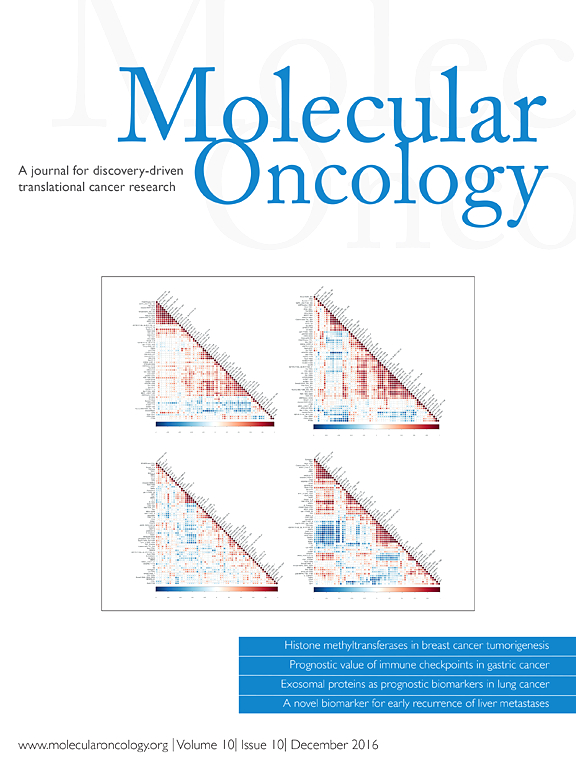MIF as an oncogenic driver of low-heterogeneity melanomas.
IF 6.6
2区 医学
Q1 Biochemistry, Genetics and Molecular Biology
引用次数: 0
Abstract
Identifying targets involved in tumor evolution and immune escape is an active area of research in oncology. Macrophage migration inhibitory factor (MIF) is an upstream immunoregulatory cytokine that promotes transformed cell proliferation and survival, and generates a tumor-permissive immune landscape of immunosuppressive myeloid and T cells. Shvefel and colleagues have identified a key role for MIF in tumor progression in melanoma clones with low tumor heterogeneity. These findings provide important insights into the potential therapeutic utility of MIF antagonists and support ongoing research to utilize MIF pathway inhibitors for improved therapeutic outcomes.
MIF 是低异质性黑色素瘤的致癌驱动因素。
肿瘤进化和免疫逃逸过程中的靶点识别是肿瘤学研究的一个活跃领域。巨噬细胞迁移抑制因子(Macrophage migration inhibitory factor, MIF)是一种上游免疫调节细胞因子,可促进转化细胞的增殖和存活,并产生免疫抑制性骨髓细胞和T细胞的肿瘤容许性免疫景观。Shvefel及其同事已经确定了MIF在低肿瘤异质性的黑色素瘤克隆中肿瘤进展中的关键作用。这些发现为MIF拮抗剂的潜在治疗效用提供了重要的见解,并支持正在进行的利用MIF途径抑制剂改善治疗结果的研究。
本文章由计算机程序翻译,如有差异,请以英文原文为准。
求助全文
约1分钟内获得全文
求助全文
来源期刊

Molecular Oncology
Biochemistry, Genetics and Molecular Biology-Molecular Medicine
CiteScore
11.80
自引率
1.50%
发文量
203
审稿时长
10 weeks
期刊介绍:
Molecular Oncology highlights new discoveries, approaches, and technical developments, in basic, clinical and discovery-driven translational cancer research. It publishes research articles, reviews (by invitation only), and timely science policy articles.
The journal is now fully Open Access with all articles published over the past 10 years freely available.
 求助内容:
求助内容: 应助结果提醒方式:
应助结果提醒方式:


